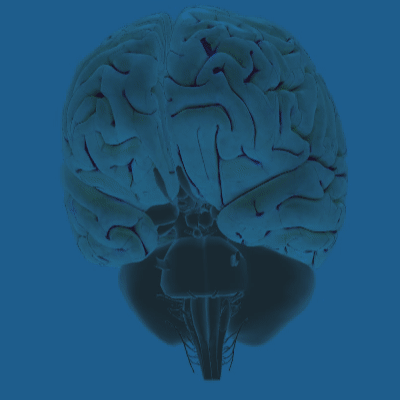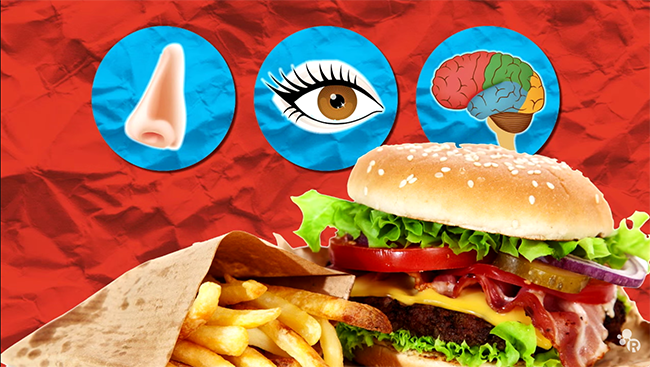How Does Fasting Affect the Brain?
- Published13 Jul 2018
- Reviewed13 Jul 2018
- Author Alexis Wnuk
- Source BrainFacts/SfN

Maybe you skip a meal here and there to try to lose weight, or perhaps you abstain from eating in observance of a religious holiday. But what happens to your brain when you forgo food? Mark Mattson, a neuroscientist at the National Institute on Aging and a professor at Johns Hopkins University, reveals the surprising brain benefits of fasting.
What is fasting?
The way we as scientists who study fasting define it is not consuming food for a long enough period of time to elevate the levels of compounds called ketones. In the fed state — that is, when you’re not fasting — glucose is the primary fuel used by cells, including neurons. Fasting depletes the liver’s store of glucose, prompting fat cells to release fats. The fats travel to the liver where they’re converted into ketones, which are essentially small pieces of fats that cells can use as an energy source.
This metabolic switch — going from using glucose to using ketones as an energy source — happens after about 10 to 14 hours of not consuming food, depending on how active you are. Exercise will accelerate the onset of the switch.
There are different types of fasting regimens. In lab animals, the main regimen we use is alternate-day fasting where the rats or mice have no food for a 24-hour period, followed by a 24-hour period where they can eat, and so on. Alternatively, you can restrict the amount of time animals have access to food to a four- to six-hour window so that they’re fasting between 18 and 20 hours a day. In people, we’ve studied a fasting regimen called the 5:2 diet, where people eat normally for five days out of the week and then eat only about 500 calories on the other two days.
What happens to the brain and body when an animal fasts?
In an animal in the wild, like a cougar or a wolf that hasn’t killed any prey in a couple of weeks, during that time they’re pretty much running on ketones rather than glucose. Obviously, it’s important that their brain and body are able to function well in that fasted state. And that’s what we’re finding in lab animals — the brain and body actually perform better during fasting. In the case of the brain, cognitive function, learning, memory, and alertness are all increased by fasting. And in the body, we recently found that mice maintained on an alternate-day fasting diet during a month of treadmill training have better endurance than mice fed every day. So intermittent fasting enhanced the mice’s physical performance.
How does fasting improve cognitive function in mice?
In lab animals, fasting, as well as exercise, stimulates the production of a protein in nerve cells called brain-derived neurotrophic factor, or BDNF. This protein plays critical roles in learning, memory, and the generation of new nerve cells in the hippocampus. BDNF also makes neurons more resistant to stress. Fasting also triggers a process called autophagy, where cells remove damaged molecules and dysfunctional mitochondria, and turns off cell growth. So neurons are in a kind of “resource conservation and stress resistance” mode during fasting. When the animal, and by extrapolation probably the human, eats after fasting, neurons shift to a “growth” mode — they make lots of proteins, grow, and form new synapses. We think these cycles of metabolic challenge, whether it’s exercise or fasting, and then a recovery period may optimize neuroplasticity, learning, memory, and the resistance of the brain to stress.
Is there any evidence suggesting that people who fast have improved cognitive function?
As of now, few studies have investigated the cognitive benefits of fasting in humans. We’re in the middle of a study at the National Institute on Aging where we’re taking people who are at risk of cognitive impairment because of their age and weight and randomly assigning them to either a 5:2 intermittent fasting diet or a control diet which is just advice for healthy eating. Before starting the diet and then two months later we’re doing a battery of cognitive tests with a focus on various aspects of learning and memory. We’re about halfway through the study now, but it’s going to be awhile before we publish the final results.
This Ask an Expert was answered by Mark Mattson as told to Alexis Wnuk for BrainFacts.org.
BrainFacts.org welcomes all your brain-related questions.
Every month, we choose one reader question and get an answer from a top neuroscientist. Always been curious about something?









